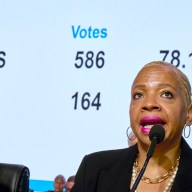Major League Baseball?and the Player’s Association announced the details of a new collective bargaining agreement Tuesday that will keep labor peace through 2016.
That’s the good news.
The bad news — big market clubs like the Red Sox, Yankees and Phillies will all have some new issues to contend with.
In MLB’s continuing quest for parity the new CBA includes multiple changes to the luxury tax, free agent signing rules and a new tax on signing players from the MLB draft.
While it’s unlikely sides would ever agree on a salary cap, they did make changes to the luxury tax already in place. Not only will teams owe the amount over the tax threshold, they will now be taxed on that percentage.
According to reports, the new luxury cap will be $178 million in 2012. Go over that with your payroll and you’ll pay a 42 percent tax. In 2013, that increases to 50 percent.
The only three teams remotely close to $178 million in 2011 — the Red Sox ($164 million, Phillies ($165 million) and Yankees ($207 million).
Also working against the big market clubs will be new rules on signing draft picks. MLB?has had a recommended contract for each slot in the draft. However, they had no rules in place to enforce it.
Small market teams were priced out of signing some top talent, while big market clubs like the Yankees would pay above slot — sometimes way above — at the back of the round. There’s still no hard slotting, but teams will now pay a tax based on how far over slot they pay draftees.
HGH test to be put in place
Maybe the most mentioned addition to the new CBA?will be the implementation of human-growth hormone testing.
Every player will be tested during spring training, while select players could be tested during the season “with due cause.”
A positive test will result in the same penalties as other performance-enhancing drugs — 50 games on the first positive test, then 100 games and a ban on the next two.
Random offseason testing will begin following the 2012 season.

















